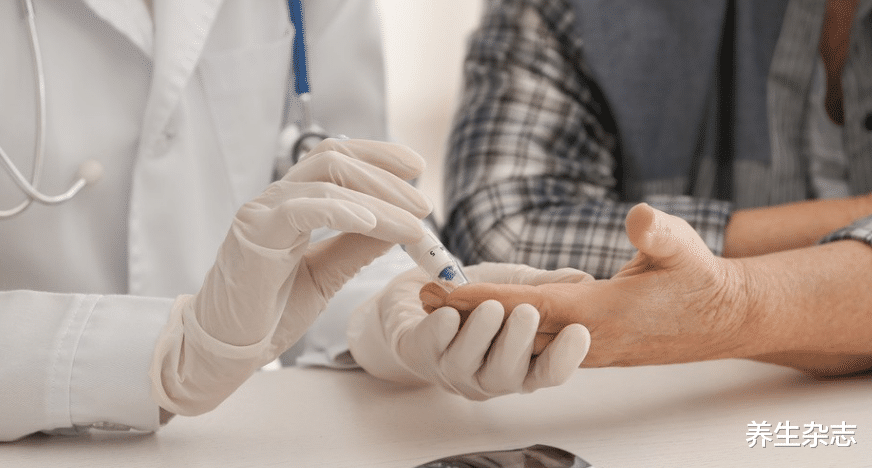The pancreas is the most important carrier for regulating blood sugar and plays a crucial role as the gland in charge of endocrine functions. According to recent data statistics, 120 million people in China have diabetes. Therefore, preventing and reducing the incidence of diabetes is something that needs to be prioritized.
Is it absolutely forbidden to eat sugar after getting diabetes?
Usually, it is not recommended for diabetes patients to consume sugar because sugar has a rapid blood sugar increasing effect on diabetes patients and can burden the pancreatic B cells. When blood sugar fluctuates, it becomes difficult to control. Also, carbohydrates consumed will break down into sugar, so complete avoidance of sugar is also not recommended.
When patients experience low blood sugar, they may need to have sugar water or even intravenous glucose for quick correction of low blood sugar. Therefore, whether diabetes patients can have any sugar at all depends on the situation and should not be taken out of context.
WHO calls for stopping the consumption of 3 foods, which may be more effective than quitting sugar:
1. Taro
Taro is rich in nutrients, with carbohydrates reaching up to 13%, mainly starch. Particularly after cooking, its glycemic index is even higher. If individuals with high blood sugar consume too much taro, it can increase the burden on the pancreas, affect insulin secretion, and slow down the body’s breakdown and metabolism of sugar, resulting in high blood sugar levels.
2. Instant oatmeal
The good taste of commercial oatmeal is mainly due to the addition of a large amount of creamer and other food additives. Excessive intake can significantly increase the burden on the pancreas, affect insulin secretion, and prevent quick breakdown and metabolism of blood sugar, leading to rapid increases in blood sugar levels.
3. Bread
Bread contains starch, butter, and a high amount of sugar. If consumed excessively, it can worsen the burden on the pancreas, affect insulin secretion, prevent the breakdown and metabolism of stored sugar, leading to fat accumulation, and rapid increase in blood sugar levels.
Doctor: To stabilize blood sugar, prevent complications, you may want to try these 3 tips in your daily routines:
One: Dietary supplement
When blood sugar levels are high, the first step is sugar control. Apart from dietary changes, you can also regulate blood sugar levels by taking the dietary supplement “Pubeishuangsu.” It is made from a combination of beneficial substances extracted from various ingredients such as kudzu root, Tianbei powder, cordyceps, and cassia seed, with high nutritional value and effective in stabilizing blood sugar.
Its pharmacological effects include:
Tianbei powder: Contains compounds that inhibit sugar absorption in the body, increases glucose tolerance, and helps stabilize blood sugar.
Cordyceps: Enhances pancreatic function, accelerates glucose oxidation and breakdown, helps reduce blood sugar concentration, and alleviates symptoms such as thirst, sweating, weakness, caused by high blood sugar.
Kudzu root: Helps eliminate free radicals, prevents atherosclerosis, promotes breakdown and metabolism of sugar and impurities in blood vessels, reduces blood sugar content, and stabilizes blood sugar levels.
For individuals with high blood sugar, taking 2 capsules of “Pubeishuangsu” after meals can help lower blood sugar levels and prevent complications.
Two: Vitamin C supplementation
Adequate daily intake of vitamin C from sources like pomelos, spinach, tomatoes, and cauliflower can enhance the body’s antioxidant capacity, prevent organ damage due to high blood sugar. Therefore, consuming more vitamin C-rich foods can significantly help lower blood sugar levels in individuals with high blood sugar.
Three: Regular monitoring
Individuals with high blood sugar must regularly monitor and manage their blood sugar levels. You can have a blood glucose meter at home for self-monitoring or visit the hospital clinic for regular measurements. Since blood sugar results may vary at different times, fasting blood sugar, postprandial blood sugar, etc., should all be monitored. Having a clear understanding of your blood sugar levels is essential for effective sugar control.
Helpful tip:
Individuals with high blood sugar can mix onions with vinegar, seal it for a day and a night, then consume it by having a few spoonfuls in the morning and evening. Onions contain a substance similar to tolbutamide, a blood sugar-reducing compound, making it an excellent vegetable for lowering blood sugar levels. It helps stimulate insulin secretion and provides some auxiliary effects for lowering blood sugar.
References:
【1】Zhao Xueqin. Relationship between Salt and Diabetes Diet Observation of Chinese Disability Medicine, 2010
【2】Liu Zhouzhou. The Influence of Dietary and Exercise Intervention on Blood Sugar Levels in Diabetic Patients, Healthy Life, 2018


